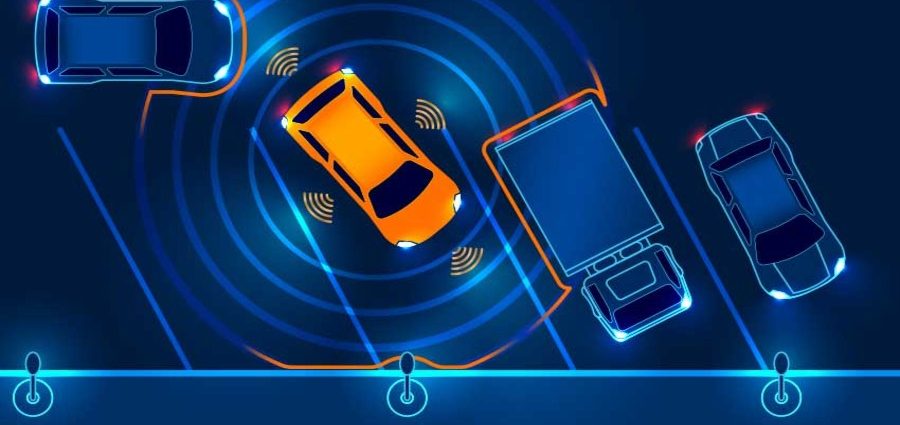The automotive industry is witnessing a rapid transformation with the advent of IoT-enabled autonomous vehicles. These vehicles offer a range of benefits, including improved road safety, enhanced efficiency, and convenient transportation. However, the increasing connectivity of these vehicles also introduces security vulnerabilities that need to be addressed. This is where blockchain technology comes into play. In this article, we will explore how blockchain can secure IoT-enabled autonomous vehicles and mitigate potential security risks.
Introduction to IoT-enabled Autonomous Vehicles
The rise of IoT-enabled autonomous vehicles has revolutionized the transportation sector. These vehicles rely on a network of sensors, connectivity, and advanced algorithms to operate without human intervention. While this technology holds immense promise, it also exposes vehicles to various security challenges. The decentralized nature of autonomous vehicles makes them susceptible to unauthorized access, data breaches, and malicious attacks.
To combat these security risks, blockchain technology offers a robust solution. Blockchain, originally introduced as the underlying technology behind cryptocurrencies like Bitcoin, has evolved beyond its financial roots. It provides a decentralized, transparent, and immutable ledger system that can enhance the security and trustworthiness of IoT-enabled autonomous vehicles.
Security Challenges in IoT-enabled Autonomous Vehicles
Before delving into how blockchain can secure autonomous vehicles, it is essential to understand the security challenges they face. Connected vehicles are vulnerable to various threats, including unauthorized access, remote control manipulation, data tampering, and privacy breaches. These security risks can have severe consequences, ranging from compromising personal safety to causing traffic accidents.
Understanding Blockchain Technology

Blockchain technology is a distributed ledger system that records and verifies transactions across multiple nodes in a network. Each transaction, or block, is time-stamped and cryptographically linked to the previous block, forming an immutable chain of information. Blockchain offers several key features that make it suitable for securing IoT-enabled autonomous vehicles:
- Decentralization: Unlike traditional centralized systems, blockchain operates on a distributed network of nodes, making it resistant to single points of failure and reducing the risk of unauthorized access.
- Transparency: Every transaction recorded on the blockchain is visible to all participants in the network, ensuring transparency and accountability.
- Immutability: Once a transaction is added to the blockchain, it becomes virtually impossible to alter or tamper with the information, ensuring data integrity.
- Consensus Mechanism: Blockchain relies on consensus algorithms to validate and agree upon the state of the blockchain. This mechanism ensures that all nodes in the network reach a consensus before adding new blocks to the chain.
Securing IoT-enabled Autonomous Vehicles with Blockchain
Blockchain technology offers several ways to enhance the security of IoT-enabled autonomous vehicles. Let’s explore some of the key applications and benefits:
- Secure Communication: Blockchain can provide a secure communication channel between different components of an autonomous vehicle system. By encrypting and validating communication data, blockchain ensures that only authorized entities can access and exchange information.
- Identity and Access Management: Blockchain-based identity management systems can authenticate and authorize access to autonomous vehicles and their associated services. This helps prevent unauthorized users from gaining control over the vehicle.
- Data Integrity and Privacy Protection: Blockchain enables the creation of an immutable record of all data transactions within an autonomous vehicle ecosystem. This ensures the integrity of data collected by various sensors and protects the privacy of vehicle owners and passengers.
- Smart Contracts for Autonomous Operations: Smart contracts, self-executing contracts with predefined rules and conditions, can be deployed on the blockchain to automate certain operations of autonomous vehicles. These contracts can ensure compliance with regulations, handle payments, and facilitate secure interactions between vehicles and infrastructure.
- Decentralized Governance: Blockchain-based governance models can enable decentralized decision-making in autonomous vehicle networks. This enhances transparency, reduces the risk of single points of failure, and allows for more efficient and secure operations.
Key Components of a Blockchain-based Security System in IoT-enabled Autonomous Vehicles
Implementing a blockchain-based security system for autonomous vehicles involves several key components:
- Identification and Authentication Mechanisms: Robust mechanisms for identifying and authenticating users, vehicles, and components within the system are crucial for ensuring secure access and operations.
- Data Integrity and Privacy Protection: Encryption techniques and cryptographic protocols can protect the integrity and privacy of data transmitted within the autonomous vehicle ecosystem.
- Smart Contracts and Decentralized Governance: Smart contracts define the rules and conditions for interactions within the autonomous vehicle network. They can automate processes, establish trust, and facilitate secure transactions.
Implementation Challenges and Considerations in IoT-enabled Autonomous Vehicles
While blockchain offers significant advantages for securing autonomous vehicles, there are implementation challenges and considerations that need to be addressed:
- Scalability and Performance: Blockchain networks may face scalability and performance limitations when handling a large number of transactions. To ensure real-time operations of autonomous vehicles, scalability solutions and optimization techniques must be implemented.
- Interoperability and Standardization: Interoperability among different autonomous vehicle systems and blockchain platforms is essential for seamless communication and compatibility. The development of industry standards and protocols can facilitate interoperability.
- Regulatory and Legal Aspects: The integration of blockchain technology into autonomous vehicles raises legal and regulatory considerations. Privacy regulations, liability frameworks, and data protection laws need to be addressed to ensure compliance and trust.
Case Studies and Examples of IoT-enabled Autonomous Vehicles
Several real-world examples demonstrate the application of blockchain technology in securing autonomous vehicles:
- Volkswagen and IOTA: Volkswagen partnered with IOTA to develop a proof-of-concept for securely transferring over-the-air software updates to vehicles using the Tangle blockchain. This ensures the authenticity and integrity of software updates.
- Mobi and BMW: The Mobility Open Blockchain Initiative (Mobi) and BMW collaborated on a project exploring blockchain solutions for secure vehicle history tracking, supply chain transparency, and identity verification.
These case studies highlight the potential of blockchain technology to address security challenges in autonomous vehicles and provide a glimpse into the future of the automotive industry.
The Role of Encryption in IoT-enabled Autonomous Vehicle Security
Encryption plays a crucial role in ensuring the security of IoT-enabled autonomous vehicles. As these vehicles collect and transmit vast amounts of data, encryption techniques help protect sensitive information from unauthorized access and tampering.
By encrypting data, it is transformed into an unreadable format, known as ciphertext, which can only be decrypted with the appropriate encryption key. This ensures that even if the data is intercepted or accessed by unauthorized individuals, it remains unintelligible and useless.
In the context of autonomous vehicles, encryption serves multiple purposes. Firstly, it safeguards the communication channels between different components of the vehicle ecosystem. This includes the secure transmission of data between the vehicle’s sensors, control systems, and external infrastructure such as traffic lights or other vehicles.
Encryption also protects data at rest, which refers to data stored within the vehicle’s onboard systems. This includes sensitive information such as GPS coordinates, vehicle diagnostics, and user preferences. By encrypting this data, it becomes inaccessible without the encryption key, adding an additional layer of security.
Furthermore, encryption can be employed to protect over-the-air software updates sent to autonomous vehicles. By encrypting these updates, the integrity and authenticity of the software can be ensured, preventing unauthorized modifications or malicious code injection.
To achieve comprehensive security, a combination of symmetric and asymmetric encryption techniques can be utilized. Symmetric encryption involves using a shared secret key to both encrypt and decrypt the data, while asymmetric encryption employs a public-private key pair, where the public key is used for encryption and the private key for decryption. By using both methods, the benefits of efficiency and secure key exchange can be realized.
Future Perspectives and Emerging Trends
The future of securing IoT-enabled autonomous vehicles with blockchain looks promising. As technology continues to advance, several emerging trends and possibilities are worth considering:
- Integration with AI and Machine Learning: Blockchain can be combined with AI and machine learning algorithms to enhance security measures, detect anomalies, and improve threat detection capabilities in autonomous vehicles.
- Edge Computing and Blockchain: Edge computing, which brings computation and data storage closer to the source of data generation, can be combined with blockchain to ensure faster and more efficient data processing within autonomous vehicle networks.
- Tokenization of Vehicle Data: Blockchain-based tokenization can enable the secure exchange of vehicle data between different stakeholders, creating new business models and opportunities within the autonomous vehicle ecosystem.
In conclusion, securing IoT-enabled autonomous vehicles is a critical task to ensure the safety and reliability of these advanced transportation systems. Blockchain technology offers robust solutions to address security challenges, provide secure communication, protect data integrity and privacy, and enable decentralized governance. While implementation challenges exist, real-world examples and emerging trends showcase the potential of blockchain in revolutionizing the security of autonomous vehicles.
FAQs
1. How does blockchain technology enhance the security of autonomous vehicles?
Blockchain provides a decentralized, transparent, and immutable ledger system that secures communication, ensures data integrity, enables secure transactions through smart contracts, and facilitates decentralized governance.
2. Can blockchain prevent hacking attempts on autonomous vehicles?
While blockchain technology can enhance security, it is not a silver bullet that can completely eliminate hacking attempts. It provides a robust layer of protection, but the overall security of autonomous vehicles requires a multi-layered approach.
3. Are there any limitations to implementing blockchain in autonomous vehicles?
Scalability, performance, interoperability, and regulatory considerations are some of the challenges that need to be addressed when implementing blockchain in autonomous vehicles.
4. What role does encryption play in securing IoT-enabled autonomous vehicles?
Encryption plays a vital role in securing the communication and data integrity within autonomous vehicles. It ensures that data transmitted and stored within the vehicle ecosystem remains confidential and tamper-proof.
5. How can blockchain help with data privacy in autonomous vehicles?
Blockchain enables the creation of an immutable record of data transactions, protecting the privacy of vehicle owners and passengers. It allows for transparent data sharing while ensuring control and consent over personal information.
I have over 10 years of experience in the field of cryptocurrency and have written numerous books on the subject. I am a highly sought-after speaker and consultant on all things crypto, and my work has been featured in major media outlets such as The Wall Street Journal, CNBC, and Forbes. I am also a regular contributor to CoinDesk, one of the leading publications in the space. In addition to my writing and consulting work, I am also an advisor for several blockchain startups.

